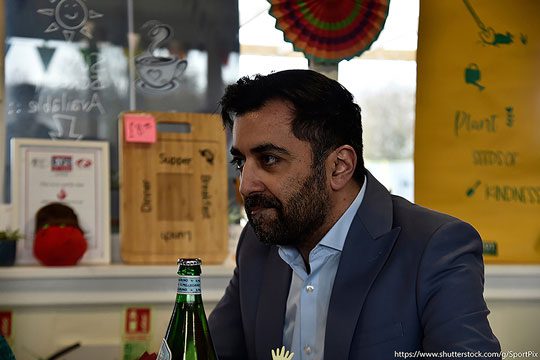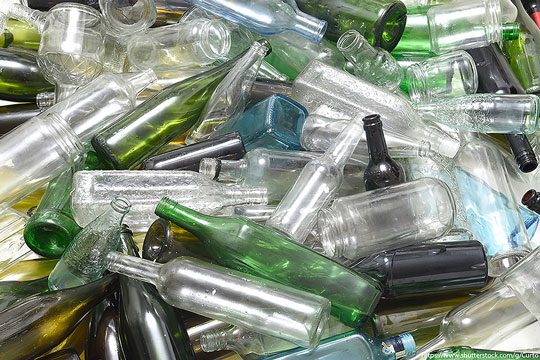ScotGov is seemingly in troubled waters after delay

A ROW over compensation, calls for governments across the UK to work together and fears about the environmental impact have all resulted from the decision to further delay Scotland’s deposit return scheme until October 2025.
The UK Government’s decision to remove glass from the scheme as a condition under the Internal Markets Act prompted First Minister Humza Yousaf to threaten to scrap the scheme altogether.
But the Scottish Government then announced the scheme would be delayed until late 2025, falling in line with the UK-wide go-live date.
The decision, which followed a tumultuous fortnight over the scheme’s viability, was met with a mixed reaction from organisations involved in both the convenience channel and the drinks industry.

Speaking to the Scottish Parliament on 7 June, Lorna Slater, circular economy minister for the SNP/Green administration, said: “It is now clear that we have been left with no option than to delay the launch of Scotland’s DRS until October 2025 at the earliest, based on the UK Government’s stated aspirations.
“I remain committed to interoperable DRS schemes across the UK, provided that we can work in the spirit of collaboration, not imposition.”
While Slater has maintained the stance that the fault for the latest delay lies at the feet of Westminster, senior industry figures urged the government to put politics aside for the moment and
work together to deliver a successful deposit return scheme.
Ewan MacDonald-Russell, deputy head of the Scottish Retail Consortium, said that the latest delay would have “serious implications” for Scotland’s green ambitions, including its 2040 Net Zero target. He said that working together would be the best option to help deliver a circular economy for the country.
He said: “In the longer term, this announcement provides an opportunity for the four home nations of the UK to come together to develop a comprehensive delivery plan, focused on consumers, based on delivering a coherent, comprehensive, clear and cost-effective deposit return scheme that can increase recycling and move to a more circular economy.
“Hitherto, the scheme has been bedevilled by a rush to unachievable dates and a failure to take on board businesses’ reasonable and practical suggestions; there is an urgent need to move beyond that and deliver this as a project without the politics.”
David Harris, chief executive at the now defunct Circularity Scotland, echoed the concerns and disappointment over Scotland’s commitment to the environment as well.
Harris said: “This is clearly a disappointing outcome, which will have a significant impact on investment in Scotland.
“We have made it clear that industry was prepared for the Deposit Return Scheme to go live in March 2024, and that a scheme without glass is both economically viable and is an opportunity for Scotland to provide a platform for a UK-wide DRS.
“Regrettably, further delaying the introduction of DRS will hinder Scotland’s progress towards net zero and mean that billions of drinks containers continue to end up as waste.”

A spokesperson for the Food and Drink Federation added: “Our businesses are working to stretch sustainability targets and take their responsibility to our natural environment very seriously, which is why we want to see a circular economy established rapidly, designed with industry and consumers at its heart.
“We hope governments across the UK will now take the time provided by this delay to go back to the drawing board on their waste reform proposals, to ensure that everything including consistent collections, DRS and EPR can be delivered successfully, learning the lessons from the collapse of the DRS scheme in Scotland.”
While there are still plenty of questions over DRS, one that has been on the minds of many leaders in both the drinks industry and the convenience channel has been the case for compensation from the Scottish Government over the latest delay.
In preparation for the incoming deposit return scheme, retailers across Scotland have been working to implement pilot schemes in their stores – which has included introducing reverse vending machines (RVMs) as well as shop refits to accommodate these devices.
All of this, of course, came with a price and, in the context of a cost-of-living crisis, the bills have only ramped up, leaving plenty of retailers out of pocket to pay for the RVMs.
The price of energy used to run the machines has also increased over the course of the last year, resulting in many businesses being further financially stretched.

And beyond the convenience stores, there have been plenty of producers that have invested into the scheme, prompting the British Soft Drinks Association (BSA) – a trade body that represents global drinks giants such as Coca-Cola and AG Barr – to call on the Scottish Government to compensate the businesses that had already invested.
Pete Cheema, chief executive of the Scottish Grocers’ Federation, said: “The blame lies within the Scottish Government. They didn’t listen to us in the first place.
“We always said this deposit return scheme was not industry-led. Had it been, they would’ve listened to us.”
He said the SGF remained committed to a fit-for-purpose DRS and now felt full alignment with the UK scheme was the best solution for both businesses and communities.
But he added: “Compensation, however, will be required for businesses who will have made significant investment decisions and signed up to contracted commitments based on glass being an in-scope material. And then there are the costs associated with the further delay to scheme implementation.
“It is vital that both UK and Scottish ministers provide immediate clarity, certainty and confidence for business on the critical path and timescale for the development for the UK scheme.
“SGF will continue to engage with both the Scottish Government and the UK Government on the next steps and to ensure that our sector’s voice is heard.”
Despite these calls for compensation, First Minister Humza Yousaf remains committed to the belief that the Scottish Government should not have to compensate businesses over this delay.
Speaking on BBC’s Sunday with Laura Kuenssberg show on 11 June, the First Minister said: “We don’t believe there’s a case for the Scottish Government to need to compensate because the action we’ve had to take is because of that 11th-hour, last-minute intervention from the UK Government, which has meant that a Scottish scheme, unfortunately, isn’t viable.”

But industry members believe that this isn’t enough from the First Minister, calling out his announcement on the TV show and noting that this latest decision will have a negative impact on ScotGov’s relationship with retail businesses going forward – something that Yousaf has seemingly been striving to improve since he came to power earlier this year.
Mo Razzaq, Blantyre retailer and national vice-president at the Federation of Independent Retailers, said: “How can the Scottish Government claim that there is no case to answer?
“It told us repeatedly to get ready for this scheme. Shopkeepers who took out leasing contracts are paying almost £4,000 a year for now-redundant machines to process returned bottles and cans.
“Some retailers have also paid thousands for structures to house the machines outside or shop fitting to accommodate them inside. This is money they can ill afford.
“The number of store closures in towns and villages across Scotland confirms small shops have a fragile economic existence.
“The Scottish Government’s claim to seek an improved relationship with business will have faint credibility if it seeks to evade paying compensation.”






















